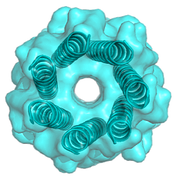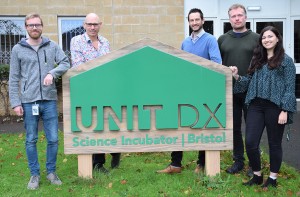University of Bristol spin-out Rosa Biotech, which is developing technology that mimics the sense of smell to detect chronic diseases, has raised £760,000 to commercialise its ground-breaking innovation.
The firm’s artificial Intelligence (AI)-driven biosensing technology, which is capable of detecting the faint chemical signature given off by diseases, has significant potential to transform the medical diagnostics and pharmaceuticals industries. 
From early disease diagnosis to enhancing industrial biotechnology, there is an ever-growing need to analyse complex biological mixtures. Most techniques rely on the expensive and time-consuming process of developing bespoke tests for specific molecules.
Inspired by the highly refined ability of dogs to smell malaria, Parkinson’s and other life-changing diseases, the researchers behind the technology demonstrated its strong potential to a wide range of sensing and diagnostic challenges.
Prof Dek Woolfson, whose team at the Bristol BioDesign Institute developed the technology, said: “Over the past 20 years, we have learnt how to design new proteins completely from scratch. Some mimic natural protein structures, but others are entirely new structures. We built a series of barrel-shaped proteins that resemble proteins of the mammalian olfactory system, but are much simpler, easier to make and easier to handle.
“It is these barrels that provide the basis for Rosa’s technology. We make arrays of different barrels, load each barrel with a dye, and then expose the array to something that we want to analyse, for instance a bodily fluid that may show signs of disease. Molecules in the sample dislodge the dyes but to different extents across the array. This gives coloured patterns that are analysed using machine learning. By recording patterns for healthy and diseased samples, we hope to build sensors for early-stage diagnosis of disease.”
Rosa has been established to refine, develop and commercialise this capability and is already working with several clinicians and pharmaceutical manufacturers. 
Rosa Biotech CEO Dr Andy Boyce added: “The scientific team has developed a sensing platform that is both sensitive enough to detect the faint chemical signature given off by chronic diseases but also versatile enough to be applied to a broad range of sensing challenges, such as the complex manufacturing process for high-value drugs.”
This work was enough to attract the attention of the South West’s growing biotech investment community. The team closed an investment round of £760,000 from an experienced group of local business angels representing one of the largest founding investments in any UoB spinout company.
Dr Harry Destecroix, founder of Ziylo, the glucose sensing company acquired by pharmaceutical giant Novo Nordisk last year, is among those investing in Rosa.
He said: “Rosa is that rare combination of an early-stage company that is built on world-class research and has already started to get traction with end-users. The combination of novel chemistry and machine learning offers huge opportunities for growth.”
Rosa’s investment will be used to grow the team, build out Rosa’s automated platform and demonstrate the utility of the technology to address challenges in new sectors.
The company is based in the Unit DX biosciences hub near Bristol Temple Meads station.






























